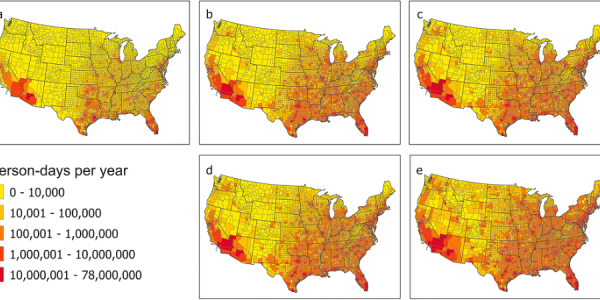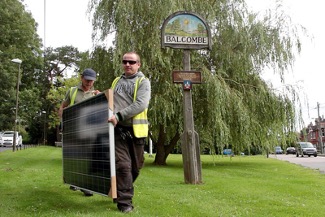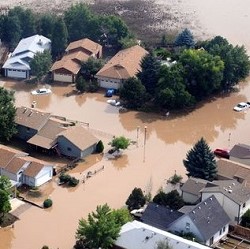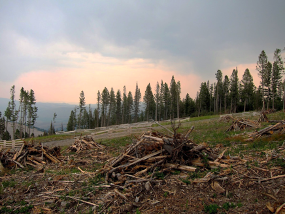As climate change causes more extreme heat days across the globe, heat has become a critical issue for public health and city planning. Recent research illuminates why extreme heat poses even greater health and economic threats than previously thought, but also points to ways we can build effective solutions to address it.
Guest Articles
Enter your email address to have updates from Energy Innovation delivered to your inbox.
Why People Oppose Or Support Offshore Wind: Distilling The Key Factors That Drive Social Acceptance Of Ocean Renewable Energy
To scale offshore wind, developers and policymakers need to understand what drives social acceptance and how to integrate community values. New research offers insight into the who and why of renewable energy support and opposition, and what specific actions could support a just transition.
Putting Humans Into Climate Models
This research review explains new studies that demonstrate how incorporating social systems into climate models is important for creating realistic climate forecasts and making informed policy decisions.
The Potential Of Hybrid Clean Energy Systems To Advance Energy And Climate Justice
New research showcases how coupling existing state efforts (1) to accelerate renewable energy adoption in underserved low-income communities and (2) to replace aging gas distribution networks with district heating and cooling could transform overburdened communities into high energy-performance communities that are safer and more resilient.
Europe’s Energy Transition: Can Renewable Energy Communities Lead To Greater Energy Justice?
As European nations operationalize their commitments to the Paris Agreement, policymakers from across the EU and the UK are promoting the creation of more renewable energy communities (RECs) to scale up decentralized renewable energy production across Europe. However, researchers argue that RECs could actually exacerbate socioeconomic divides. Local and national policies can address potential pitfalls and ensure that RECs can indeed be a mechanism for energy justice in the transition.
Climate Science And Financial risk: Forging A Path To More Climate-Resilient Businesses
As awareness of climate risks grows, more businesses are struggling to quantify climate change impacts, but applying climate model data appropriately is a major challenge. Researchers are identifying new ways climate science can help businesses, investors, and insurance underwriters make more informed decisions.
Addressing Inequities In The Mental Health Burden Of Climate Change
This research review highlight the challenges of studying the mental health impacts of climate change along with the lack of representation in current research of those most vulnerable to and most impacted by climate change.
Dusting For “Fingerprints” On Our Climate: Innovations In The Attribution Of Extreme Events
Extreme weather events are becoming more frequent and more severe as climate change accelerates. Advances in modeling now make it possible to more quickly and reliably determine to what extent global warming causes individual events, offering greater opportunities to educate the public about climate change impacts.
How “Agrivoltaics” Can Provide More Benefits Than Agriculture And Solar Photovoltaics Separately
Solar power plays an essential role in the clean energy transition, but its land-use requirements put it in direct competition with agriculture. New research on agrivoltaics demonstrates the benefits of combining both solar and agricultural production including increased productivity, water conservation, and local economic development, while also bolstering public support for clean energy.
After The Megafires: What’s Left And What’s Next
Research shows increasingly frequent, more intense wildfires in the Western U.S. will dramatically shift the landscape over the coming decades, resulting in the conversion of forests to shrublands, grasslands, or hardwood-dominated ecosystems before 2100, but strategies such as prescribed fires, managed wildfires, and silvicultural treatments could help protect forests.










